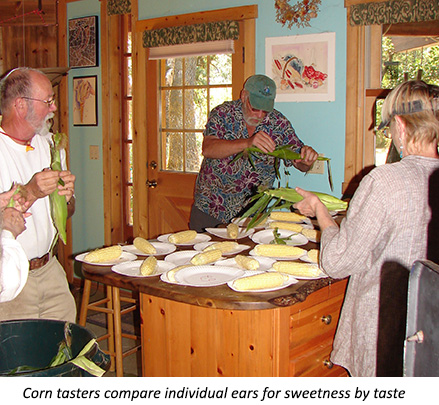Create Two Open-Pollinated, Sugary Enhanced Sweet Corn Varieties--Year 4
 Very little sweet corn grown commercially today is open pollinated. Farmers who wish to save their own seed have few if any good choices of varieties to grow. And the hybrids of today have been developed for conditions that are different from those found on most organic farms, as they were selected to rely on fungicides and pesticides, and to effectively utilize soluble synthetic fertilizers in large quantities.
Very little sweet corn grown commercially today is open pollinated. Farmers who wish to save their own seed have few if any good choices of varieties to grow. And the hybrids of today have been developed for conditions that are different from those found on most organic farms, as they were selected to rely on fungicides and pesticides, and to effectively utilize soluble synthetic fertilizers in large quantities.






